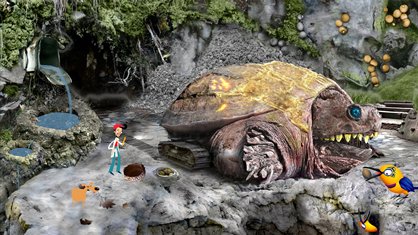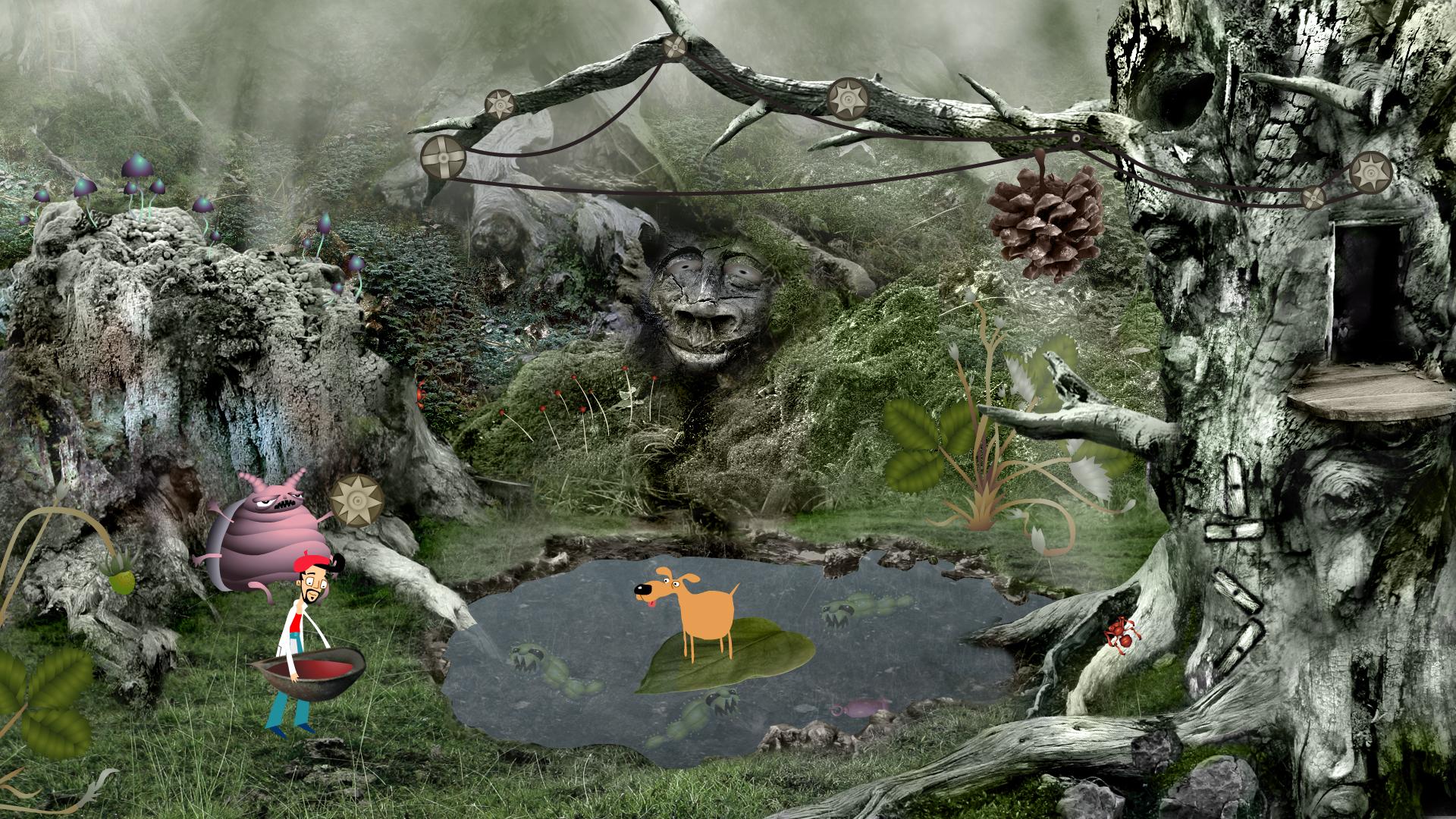GamesRadar+ Verdict
Pros
- +
A splendid slice of silliness
- +
Like a childhood book in game form
- +
QTEs and minigames mix things up
Cons
- -
Some unfairly obscure puzzles
- -
Quite short
- -
Will be too weird for some
Why you can trust GamesRadar+
It’s been said that nobody makes wacky games quite like the Japanese. By the same standard, nobody comes close to Eastern Europe either. In weirdness stakes Eastern Europe runs a close second: Eerie, Indiana to Japan’s Twin Peaks. The latest slice of down-the-rabbit-hole bonkersness comes courtesy of Axel & Pixel: a point and clicker following French artist Axel and his friendly dog Pixel as they pursue an evil key-thieving rat through four seasons of nightmarish worlds clearly inspired by free PC favorite Samorost.

Like many point and clickers its solutions range from the forehead-slappingly obvious to the unfairly obscure (such as coaxing a young bird into the mouth of a giant tortoise to use its head as a ladder). What is impressive, however, is its use of QTEs and minigames to bolster the adventure and inject fresh ideas into the predictable template. The adventure’s a bit short, but a decent selection of collectibles will drag you back once you’re done.
Nov 11, 2009
More info
| Genre | Adventure |
| Description | An artist (Axel) and his dog (Pixel) enter a strange world and must work together to solve puzzles in this XBLA release. The engrossing adventure is a bit short, but a decent selection of collectibles will drag you back once you’re done. |
| Platform | "Xbox 360" |
| US censor rating | "Everyone" |
| UK censor rating | "7+" |
| Alternative names | "Axel and Pixel " |
| Release date | 1 January 1970 (US), 1 January 1970 (UK) |



